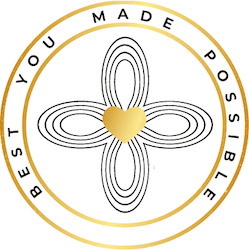Getting Healthy With An Addiction
You must uncover the root cause of your addiction and be willing to suffer some initial discomfort. The hardest step it not admitting you have an addiction; the hardest step is admitting that you feel powerless against the addiction. The pride you take in every other aspect of your life gets shattered by that one admission
Your addiction developed because of inappropriate or unhealthy means of coping with a situation spiritually, psychologically, physically, or financially. Taking it a step further, the feelings generated by your beliefs, thoughts, and emotions surrounding the I.F. [inciting factor], leave you so physically uncomfortable or psychologically distressed that you seek out relief using your chosen addictive behavior [alcohol, drugs, food, gambling, nicotine, work, etc.].
Low Distress Tolerance May Be An Issue
It is not the feelings per se, but how those feelings have become intimately linked to a natural instinct. You perceive a threat that is non-existent or that is no longer real; yet, in your being, you continue to respond physically and psychologically as if the threat is real. Thus, you default to the behavior that numbs the feelings. Still it goes a step deeper. It’s failing to accept that there are things beyond your control that require a higher power for healing, which necessitates a full surrendering of your will. Add to this is the realization that the distortion of a natural impulse or instinct contributes to the perpetuation of your addiction. Therein lies the complexity for many who do not believe in God.
What I Learned About My Addiction
Addictions develop because of an inability to tolerate distress and/or cope effectively with distress. Instead of coping with the distressing incident and the intense negative feelings, you reach for something to dull or numb the pain. Furthermore, failure to recognize that we create our emotional feelings by our beliefs and thoughts, compounds the problem. Pretty soon, your body chimes in with the feel good chemicals and a chemical response happens that makes you feel good. Unfortunately, consciously and/or unconsciously you start seeking out that “feel good” sensation. Add to that, your brain sends signals to your body to seek out that thing so you can “feel good”. Pretty soon, it requires more and more to get the same feeling of release or pleasure. Thus, the vicious cycle begins and continues unless you plot a course of action that involves getting help from a reliable source.
Breaking The Cycle Of Addiction
- Admit that you have an addiction
- Have a support system that you trust
- Do the psychological and spiritual work to discover the root cause of your addiction
- Understand that your addiction is preventing you from living your best life
- Know that initially there will be discomfort
- Recognize your triggers
- Use mindfulness to cope with your I.F.
- Take it one moment at a time [be patient]
Don’t Be Controlled By Your Feelings
I am not a Psychiatrist or Psychologist; therefore, please seek help from a reliable source if after reading this you decide that you are exhibiting behaviors consistent with having an addiction. There are many free and well respected programs available for anyone suffering with a variety of addictions. You can overcome the addiction, BUT you have to:

- Be brutally HONEST with yourself
- Find and normalize the natural instinct which has become distorted
- Consistently aim to do the next healthy thing
- Trust in your highest power
- Understand that you create your emotional feelings
- Discover the core negative beliefs, untruths, that you are holding on to
Always remember at the end of the day, fill your cup with love and there will be less room for your addiction. Ask yourself these two questions when in doubt: What am I believing or thinking right now about myself that is causing distress? What would happen if this time I said this is an untruth?


